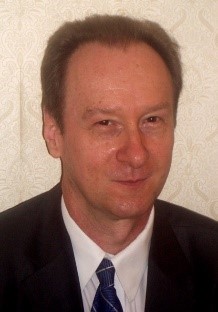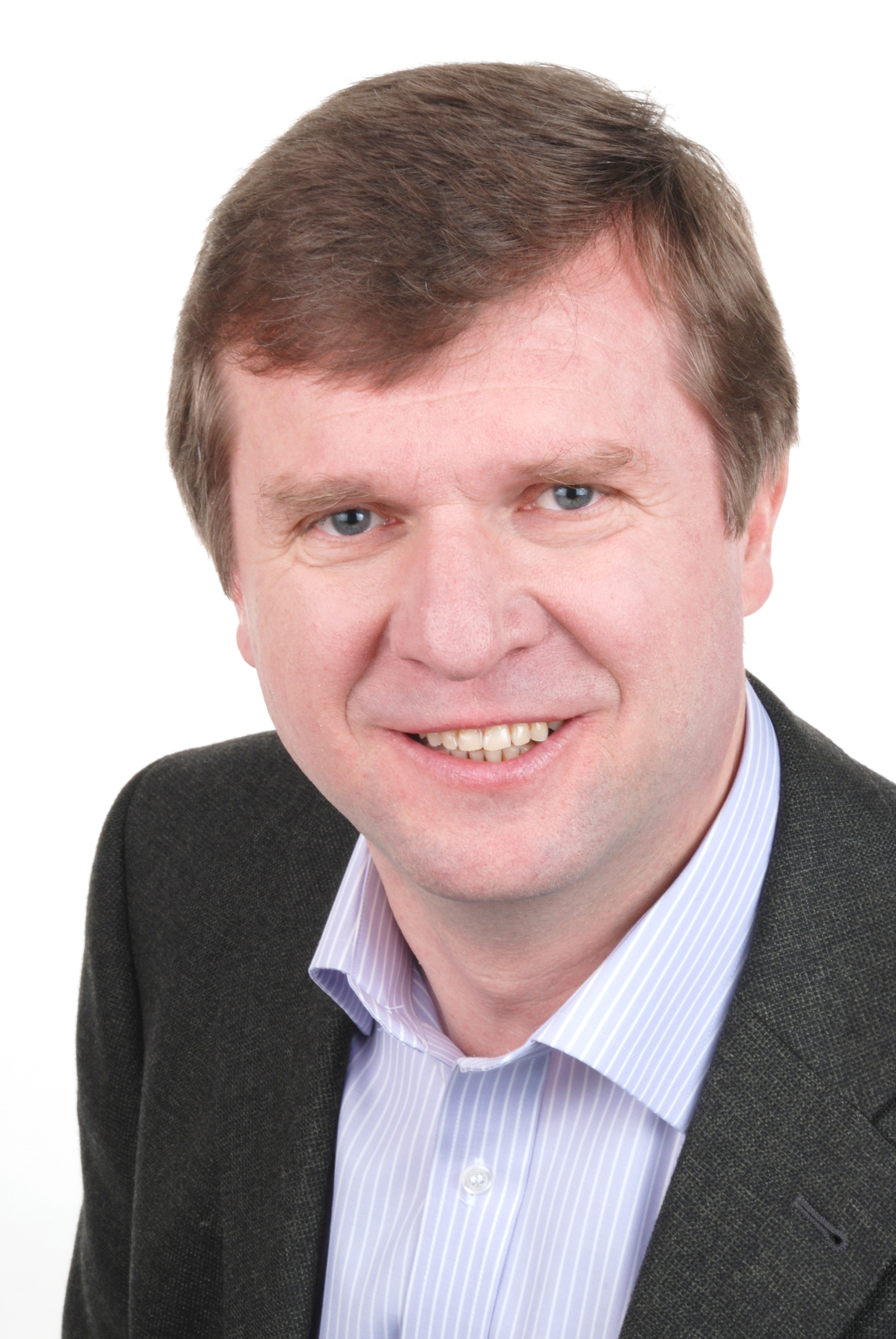Keynote Speakers
Prof. Martin Maier
Institut National de la Recherche Scientifique (INRS), Montreal, QC, H5A 1K6, CanadaSpeech Title: On INTERBEING: The Symbiosis between INTERnet and Human BEING in the Metaverse
Abstract: The advent of smart wearables such as Apple's recently announced first spatial computer Vision Pro equipped with 3D cameras entails that the Internet will no longer be at arm's length. With the rise of the emerging Metaverse, the future 3D Internet will be about being inside the Internet rather than simply looking at it from a 2D phone or computer screen. In the coming age of hyperintelligence, new cybernetic organisms will emerge from existing AI systems. These hyperintelligent cybernetic organisms will soon think thousands then millions of times faster than us and they will regard us humans as we now regard plants, though both are anticipated to live together in a mutually beneficial symbiosis. This keynote will elaborate on the symbiosis of Inter(net) and (human) being in the context of the future Metaverse’s so-called Virtual Society, giving rise to the powerful concept of Interbeing, a word that is not in the dictionary yet. AI software solutions will thereby play a central role in filling out these virtual worlds of the Metaverse, powered by human participation and human-in-the-loop/AI interactions with a range of constantly evolving AIs, ranging from intelligent smart contracts to novel life-like digital organisms that exploit generative AI models to produce clever solutions that AI researchers did not consider, had thought impossible, or even outwitting us humans.
Biography: Martin Maier is a full professor with the Institut National de la Recherche Scientifique (INRS), Montréal, Canada. He was educated at the Technical University of Berlin, Germany, and received MSc and PhD degrees both with distinctions (summa cum laude) in 1998 and 2003, respectively. He was a recipient of the two-year Deutsche Telekom doctoral scholarship from 1999 through 2001. In 2003, he was a postdoc fellow at the Massachusetts Institute of Technology (MIT), Cambridge, MA. He was a visiting professor at Stanford University, Stanford, CA, 2006 through 2007. He was a co-recipient of the 2009 IEEE Communications Society Best Tutorial Paper Award. Further, he was a Marie Curie IIF Fellow of the European Commission from 2014 through 2015. In 2017, he received the Friedrich Wilhelm Bessel Research Award from the Alexander von Humboldt (AvH) Foundation in recognition of his accomplishments in research on FiWi-enhanced mobile networks. In 2017, he was named one of the three most promising scientists in the category “Contribution to a better society” of the Marie Skłodowska-Curie Actions (MSCA) 2017 Prize Award of the European Commission. In 2019/2020, he held a UC3M-Banco de Santander Excellence Chair at Universidad Carlos III de Madrid (UC3M), Madrid, Spain. He is co-author of the book “Toward 6G: A New Era of Convergence” (Wiley-IEEE Press, January 2021) and author of the sequel book “6G and Onward to Next G: The Road to the Multiverse” (Wiley-IEEE Press, February 2023).
Prof. Milan Tuba
Computer Science and Mathematics, Head of the Artificial Intelligence Project, Singidunum University, SerbiaSpeech Title: Machine Learning for Intelligence Systems with Digital Images
Abstract: Many current intelligence systems such as autonomous vehicles, security applications, automated diagnostic systems, and others, have digital image classification as a crucial part. Over time, extensive research efforts have introduced many classification techniques but convolutional neural networks (CNNs) brought a revolution in the field and have become a superior method that has drastically improved classification accuracy. Topics that have been the subject of research for years are nowadays one-hour classes for even undergraduates. However, new research topics were introduced along with convolutional neural networks. For example, the problem of finding the optimal CNN configuration and architecture is exponentially hard since there are numerous hyperparameters such as the number, type and order of layers, number of neurons in each layer, kernel size, optimization algorithm, padding, stride, and many others, that should be fine-tuned. Additionally, this tuning has to be done for each classification problem. For this exponentially hard problem often a rather crude method is used that guesses good starting values and estimates better values for the hyper-parameters (guestimating). Another method that is commonly used is grid search. Since this is an optimization problem, some recent studies tested different optimization metaheuristics such as swarm intelligence algorithms. The usage of swarm intelligence algorithms for finding CNNs’ configuration is extremely time-consuming but the improvement of the classification accuracy can be significant. This talk will cover recent advantages and challenges of CNN such as finding the optimal configuration problem of unknown features, and more.
Biography: Milan Tuba, Professor of Computer Science and Mathematics, Head of the Artificial Intelligence Project at Singidunum University and Vice-Rector of Research at Sinergia University, is included in both versions of the Stanford University list of 2% of the most influential scientists in the world in all disciplines, one for contribution during the entire career and other for contribution in the previous year (for years 2020, 2021 and 2022). He was Vice Rector for International Relations, Singidunum University, Belgrade, Head of the Department for Mathematical Sciences at State University of Novi Pazar and Dean of the Graduate School of Computer Science at John Naisbitt University. Prof. Tuba is the author or coauthor of around 300 scientific papers (cited more than 6,500 times, h-index 48) and editor, coeditor or member of the editorial board or scientific committee of number of scientific journals, Springer books, congresses and international conferences. He was invited and delivered more than 60 keynote and inaugural lectures at international conferences.
He received B. S. in Mathematics, M. S. in Mathematics, M. S. in Computer Science, M. Ph. in Computer Science, Ph.D. in Computer Science from University of Belgrade and New York University. From 1983 to 1994 he was in the U.S.A. at Vanderbilt University in Nashville and Courant Institute of Mathematical Sciences, New York University and later as Assistant Professor of Electrical Engineering at Cooper Union School of Engineering, New York. During that time, he was the founder and director of Microprocessor Lab and VLSI Lab, leader of the NSF scientific projects and theses supervisor. He was the mentor of dozens of doctoral and master's dissertations at the Faculty of Mathematics University of Belgrade, Singidunum University, University of Sarajevo, State University of Novi Pazar, John Nesbitt University and University of East Sarajevo. He was teaching more than 20 graduate and undergraduate courses, from VLSI Design and Computer Architecture to Computer Networks, Operating Systems, Artificial Intelligence, Image Processing, Calculus and Queuing Theory at numerous universities in Europe and the USA. Prof. Tuba is a member of the National Agency for Accreditation of Universities of the Republic of Serbia.
His research interest includes Artificial Intelligence, Deep Learning, Neural Networks, Nature-inspired Optimization Algorithms, Image Processing, Computer Networks. Senior Member IEEE, ACM, AMS, SIAM, IFNA, Executive Board of IASEI.
More information about Prof. Milan Tuba could be found via https://eng.singidunum.ac.rs/profile/mtuba
Prof. Dr. habil. Sergei Gorlatch
University of Muenster, GermanySpeech Title: Future Intelligent Applications Based on Mobile Clouds and Software-Defined Networks
Abstract: We consider an emerging class of challenging intelligent applications called Real-Time Online Interactive Applications (ROIA). ROIA are networked applications connecting a potentially very high number of users who interact with the application and with each other in real time, i.e., a response to a user’s action happens virtually immediately. Typical representatives of ROIA are multiplayer online computer games, advanced simulation-based e-learning and serious gaming. All these applications are characterized by high performance and QoS requirements, such as: short response times to user inputs (about 0.1-1.5 s); frequent state updates (up to 100 Hz); large and frequently changing numbers of users in a single application instance (up to tens of thousands simultaneous users). This talk will address two challenging aspects of future cyber-applications: a) using Mobile Cloud Computing for allowing high application performance when a ROIA application is accessed from multiple mobile devices, and b) managing dynamic QoS requirements of ROIA applications by employing the emerging technology of Software-Defined Networking (SDN).
Biography: Sergei Gorlatch is Full Professor of Computer Science at the University of Muenster (Germany) since 2003. Earlier he was Associate Professor at the Technical University of Berlin, Assistant Professor at the University of Passau, and Humboldt Research Fellow at the Technical University of Munich, all in Germany. Prof. Gorlatch has more than 200 peer-reviewed publications in renowned international books, journals and conferences. He was principal investigator in several international research and development projects in the field of software for parallel, distributed, Grid and Cloud systems, machine learning, and networking, funded by the European Community and by German national bodies.



